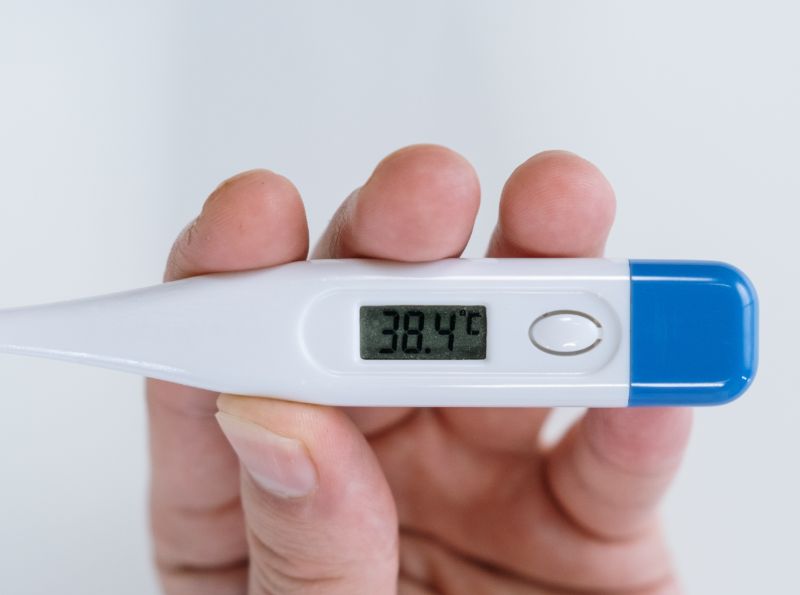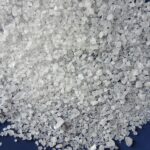
If you want to lose weight and burn body fat, you might be surprised to learn that raising your core body temperature could be the key to success.
This article explores how to increase your core body temperature for weight loss, the benefits, and the precautions you should take.
Table of Contents (click to expand)
What is Core Body Temperature?
Your core body temperature is the temperature of your internal organs and tissues. It’s an essential indicator of your body’s overall temperature regulation. When your core temperature drops too low or rises too high, it can cause health problems.
The average core body temperature for humans is around 98.6°F (37°C). However, this can vary depending on age, time of day, and physical activity level. For example, increased metabolic activity naturally increases your core body temperature during exercise.
Why Does Core Body Temperature Affect Weight Loss?
The relationship between core body temperature and metabolism is complex. The body’s temperature is an integral part of how it functions. In essence, every biochemical reaction that happens in our bodies, which together make up our metabolic rate, is influenced by temperature.
Enzymes, the biological catalysts responsible for chemical reactions in our cells, are temperature-sensitive. If the body’s temperature is too low, enzymatic reactions slow down, decreasing the metabolic rate.
Conversely, if the body’s temperature is higher, these reactions can speed up, increasing the body metabolism or metabolic rate. This principle underlies the understanding that the basal metabolic rate (BMR) – the rate at which your body burns calories at rest – could be affected by core body temperature.
The study published in the International Journal of Obesity found a correlation between increased core body temperature and resting metabolic rate. However, this does not necessarily mean that intentionally raising your core body temperature will lead to sustained weight loss. It’s important to understand that while there may be a correlation, it does not equate to a cause-and-effect relationship.
Most of the body’s energy expenditure at rest (or during non-exercise periods) goes to maintaining essential body functions such as brain activity, heart function, respiration, and body temperature.
This energy is primarily derived from the basal metabolic rate. While this rate may temporarily increase with an elevated body temperature, the predominant factors determining your BMR are your body size, composition (the amount of muscle vs. fat tissue), age, and genetics.
Methods for Raising Your Core Body Temperature
Exercise
One of the most effective ways to raise your core body temperature is through exercise. Physical activity increases blood flow and raises your core temperature body up. High-intensity workouts like circuit training or HIIT (high-intensity interval training) are particularly effective for raising your core temperature and burning calories.
In addition to its calorie-burning benefits, exercise has many other health benefits. Regular exercise can improve cardiovascular health, boost mood, and reduce the risk of chronic diseases like diabetes and cancer.
Sauna
Sitting in a sauna is another effective way to increase your core body temperature. Saunas use dry heat to raise your body’s internal temperature, causing you to sweat and release toxins. The heat also increases blood circulation, which can help with recovery after exercise.
Taking 15-20 minute sauna sessions 2-3 times a week is recommended. However, it’s essential to stay hydrated and listen to your body. If you feel dizzy or lightheaded, exit the sauna immediately.
Saunas have been used for centuries for their health benefits. In addition to raising core body temperature, saunas have been shown to improve cardiovascular health, reduce inflammation, and promote relaxation.
Spicy Foods
Spicy foods can help raise your core body temperature due to capsaicin. Capsaicin is a compound found in peppers that causes a burning sensation when ingested. Eating spicy foods also increases your heart rate, which can help with weight loss.
Add ingredients like cayenne pepper, jalapenos, or sriracha sauce to incorporate spicy foods into your diet. However, be cautious if you have stomach issues or acid reflux, as spicy foods can exacerbate these conditions.
In addition to its weight loss benefits, capsaicin has been shown to have anti-inflammatory and pain-relieving properties.
Cold Exposure
Exposure to cold temperatures can also increase your core body temperature as your body generates heat to keep warm. Cold showers or ice baths are popular techniques for raising core body temperature.
However, it’s important to note that extended periods of exposure to lower temperatures can be dangerous and cause severe side effects. Furthermore, people with certain health conditions, such as cardiovascular disease or Raynaud’s syndrome, should avoid exposure to cold temperatures.
Cold exposure has been shown to have a range of health benefits beyond weight loss. It can improve cardiovascular health, boost mood, and promote recovery after exercise.
Thermogenic Supplements
Many weight loss supplements claim to increase body temperature and encourage. These supplements typically contain natural ingredients like green tea extract, caffeine, or capsaicin. Some studies have shown that certain supplements can increase the body’s thermogenesis or heat production.
However, it’s important to research and consult with a healthcare professional before taking any supplements. Some supplements can have negative side effects or interact with other medications.
Precautions and Side Effects
While raising your core body temperature can benefit weight loss, taking precautions to avoid adverse side effects is essential. Here are some things to keep in mind:
- Stay hydrated: Increasing your core body temperature can cause you to sweat, so it’s essential to drink plenty of water to stay hydrated.
- Monitor your body: If you feel dizzy or lightheaded, exit the sauna or stop exercising immediately.
- Avoid overexertion: Don’t push yourself too hard during exercise, which can cause injury or heat exhaustion.
- Be cautious with supplements: Some weight loss supplements can have negative side effects or interact with other medications.
Lifestyle Changes to Support a Higher Core Body Temperature
In addition to the methods discussed above, you can make some lifestyle changes to support a higher core body temperature and aid in weight loss.
Adequate Hydration
Staying hydrated is crucial for maintaining core body temperature. Drinking enough water helps regulate body temperature and supports blood circulation, which aids in weight loss. The recommended daily water intake is 8 cups (64 ounces) daily.
Quality Sleep
Getting enough quality sleep is also important for maintaining core body temperature and supporting weight loss. Lack of sleep can lower core body temperature, decrease metabolism, and increase the risk of weight gain. Aim for 7-8 hours of quality sleep per night to support a healthy core body temperature.
Stress Reduction
Stress can have a negative impact on your core body temperature and metabolism. Chronic stress can lead to a lower core body temperature, decreased metabolism, and weight gain. Practicing stress-reducing techniques like meditation, deep breathing, or yoga can help improve your body’s core body temperature humans its regulation and aid in weight loss.
Frequently Asked Questions
Does increasing internal body temperature help you lose weight?
Increasing internal body temperature does not directly contribute to weight loss in a safe or sustained way. While it’s true that certain activities that increase body temperature, such as exercise, can contribute to weight loss, it is not the increase in body temperature that causes this effect.
Instead, physical activity, which burns calories and promotes muscle growth, leads to weight loss. Trying to lose weight by intentionally increasing your body temperature, such as exposure to high temperatures or wearing heavy clothes, can be dangerous and unnecessary.
How can I raise my core temperature naturally?
While raising your core temperature isn’t directly tied to weight loss, you can naturally increase it through several methods. The safest and most effective way is through physical activity, which causes the body to generate more heat to supply the muscles with energy.
Other ways to raise your core temperature include consuming spicy foods, which can cause a temporary increase in metabolism and body heat, or taking a warm bath or sauna. However, these methods should be used cautiously, as prolonged or extreme increases in the body can be dangerous.
Does increasing core temperature increase metabolism?
Metabolism and body temperature are interrelated. An increase in body temperature can temporarily increase metabolic rate as your body works harder to maintain homeostasis. This is often why you may feel hot after eating a large meal; digestion is metabolically intensive.
Additionally, exercise increases your metabolic rate and also your body temperature. However, these increases are temporary, and intentionally increasing your body temperature is not a safe or effective strategy for boosting your long-term metabolism.
Does higher body temperature burn more fat?
While it’s true that your body may burn more calories when it’s working to cool you down, this doesn’t necessarily mean you’re burning more fat. When your body temperature rises, your body burns more calories to return to an average temperature.
However, the calories burned in this process come from readily available sources like blood glucose and glycogen stored in muscles, not from stored fat. Furthermore, trying to raise your body temperature to burn more calories can be dangerous, leading to heatstroke and other heat-related illnesses. The most effective and safe ways to get increased body temperature to burn fat are through a healthy diet and regular exercise.
Conclusion
Raising your core body temperature is an effective way to support weight loss and burn body fat. You can increase your body’s internal heat production and boost your metabolism by incorporating methods like exercise, sauna, spicy foods, cold exposure, and supplements.
However, taking precautions and consulting with a healthcare professional before adding new supplements or activities to your routine is essential. With a little effort and lifestyle changes, you can raise your core body temperature and achieve your weight loss goals.





































